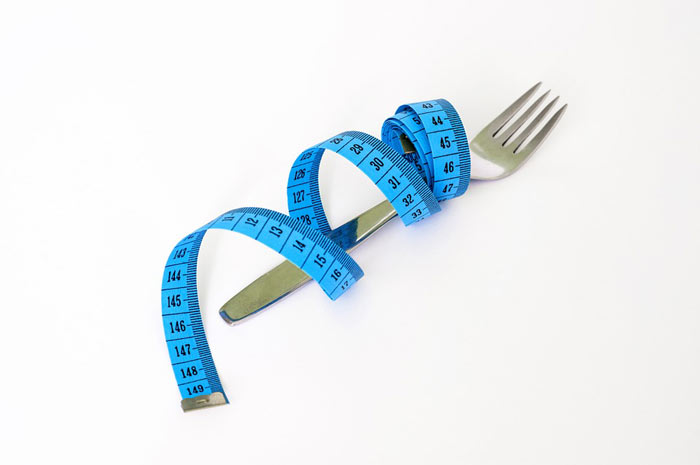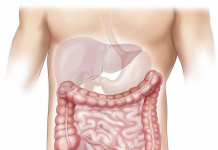We try to take into account the amount of protein, fat, and carbohydrates in order to eat well. But we often forget about another important element – dietary fiber. Fiber is an essential component of the diet. It is a dietary fiber found in plant foods and is a rich source of food for bacteria living in the gut. We figure out how much dietary fiber and what the body needs.

What Are the Kinds of Dietary Fiber?
Fiber can be insoluble and soluble. In contact with water, soluble fiber acquires a viscous texture, similar to liquid oatmeal, which helps food move through the intestines.
Insoluble fiber stimulates the walls of the gastrointestinal tract, promoting the secretion of gastric mucus, and is involved in the formation of feces. This is not the most aesthetic, but the most understandable description of the main effect of fiber on the human body.
Now, let’s try to figure out other useful properties of this miraculous component.
Water-soluble dietary fibers
Water-soluble fiber helps to slow down the absorption of sugar in the intestines by lowering the GI (glycemic index) of foods. Accordingly, the concentration of sugar and insulin in the blood decreases, which is extremely beneficial for people with insulin resistance, type II diabetes or a predisposition to this disease. Apples, carrots, oranges, plums, and oatmeal are rich in water-soluble fiber.
Water-insoluble dietary fibers
Water-insoluble fiber helps fight constipation. Moving along the digestive tract, it absorbs fluid and also speeds up the passage of food. However, sufficient water consumption becomes an important factor here. This fiber is found in vegetables and a variety of whole grains.
Fiber Helps You Lose Excess Weight

Fiber can help you lose weight or maintain weight. It literally fills the intestines, expanding with water and providing a feeling of fullness through long digestion.
Dreaming of a slim figure? Eat more fiber, especially since it is easy to include in your daily diet. Wheat, potatoes, and rice are the leaders in fiber content. There have been many studies that have confirmed that this measure is simpler and no less effective than strict adherence to a complex diet with a ban on specific foods.
Fiber Prevents Gallstones
Fiber protects against gallstones and helps lower cholesterol. Passing the duodenum, it actively absorbs the substances that make up bile (bile acids, bilirubin, cholesterol).
Fiber Reduces Cancer Risk
Fiber stimulates the absorption of nutrients into the bloodstream and lymph by cleansing the villi covering the intestines. Thus, it also reduces the likelihood of developing oncology – after all, the time of contact of the mucosa with carcinogens is significantly reduced.
In addition, fiber has the ability to remove toxins, waste products, and harmful estrogen-like compounds from the body.
Fiber Supports Your Immunity

By part, fiber (namely non-fermentable fibers) is food for the microbiome. As a result, short-chain fatty acids and other valuable substances are formed in the intestines.
Did you know that the immunity and protection against inflammation “live” in the intestines? The abundance of dietary fiber provides a diverse microbiome that protects your body from inflammation and pathogenic bacteria, helping to strengthen the immune system and reduce stress levels.
Dietary Fiber Lifts up Your Spirit
Hormones, very important substances, are produced in the intestines, and their level influences our well-being. Hormones such as endorphins and serotonin, which are often referred to as “happiness hormones”, induce the feelings of well-being, joy and elation in a person. But you hardly know that about 80-90% of the total volume of serotonin in our body is produced by nerve cells in the intestines.
Thus, the intestines are our second brain. Therefore, its health must be monitored accordingly. It is also necessary to “feed” it wisely – to regularly give it fiber.
Dietary Fiber Reduces Cardiovascular Diseases Risk

The presence of fiber in the menu reduces the likelihood of developing cardiovascular pathologies by 15-30%. And this is a powerful argument in favor of carefully monitoring your diet and not forgetting to include simple but extremely healthy foods in it.
How Much Dietary Fiber Is Enough?
Add fiber to your diet gradually to avoid negative gastrointestinal reactions. If you start eating a lot of fiber abruptly, unpleasant “special effects” in the form of bloating, diarrhea or abdominal pain are quite possible. Therefore, even the best changes should be smooth and understandable for the body.
Ideally, aim to eat three servings of vegetables and two fruits a day, preferably in different colors: for example, tomatoes, carrots, broccoli, apples, and bananas one day, and cucumbers, zucchinis, potatoes, pears, and strawberries – the other day.
Pay attention to the way you cook your food: fried potatoes are not as healthy as a baked apple. Raw, stewed, steamed, boiled, fried and baked vegetables and fruits should prevail on the menu. Fried until crispy or drenched in sugar dishes should not be on the table.
Can You Take Supplements Instead of Eating Dietary Fiber?

On the one hand, this is quite a working idea, especially given the rhythm of modern life. But it is important to remember the following rule: what you can get with food should rather be obtained from it. The fiber in dietary supplements is exclusively fiber, without useful substances that are found in vegetables and fruits.
Another problem is related to the fact that industrially produced fiber behaves differently from natural fiber: due to the loss of the ability to transform into a viscous mass, it does not fill the intestines at all and, accordingly, does not provide the feeling of satiety. It is recommended to use vitamins and dietary supplements only after consultations with a specialist and under their supervision.










